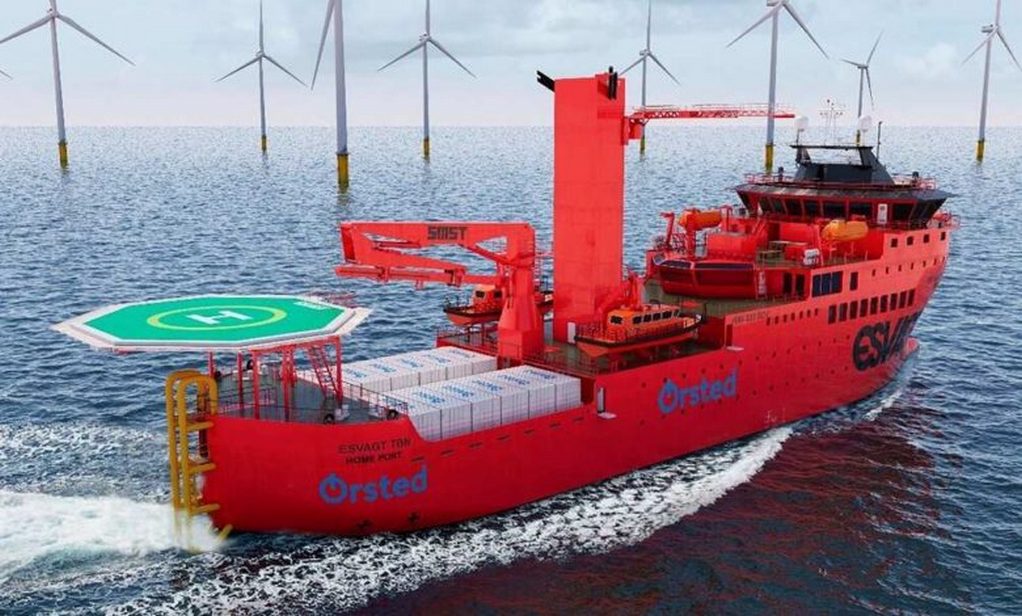The “world’s first” e-methanol-fueled service operation vessel (SOV) was launched at Cemre Shipyard in Türkiye.
In April 2022, Esvagt and Ørsted decided to invest in what the companies described as the world’s first SOV that can operate on green fuels. A month later, Cemre Shipyard received an order to build the hybrid, methanol-fueled SOV.
The NB1094 SOV will be powered by batteries and dual-fuel engines, capable of sailing on renewable e-methanol, produced from wind energy and biogenic carbon, which will lead to a yearly emission reduction of approximately 4,500 tons of CO2, the companies said.
Ørsted intends to supply the e-methanol for the new SOV.
The 93-meter-long vessel will provide accommodations for 124 persons and will be built according to DNV classification rules. With a depth of 8 meters and a width of 19.6 meters, the SOV will sail under the Danish flag.
Once commissioned in 2024, the ship will start servicing the world’s largest offshore wind farm, Hornsea 2, located off the UK’s Yorkshire coast in the North Sea.
In July 2023, Esvagt and Ørsted signed an agreement for a second methanol-powered SOV, which is a sister vessel to the world’s first methanol-powered SOV.
The second vessel is planned to be launched in 2026, where it will operate out of Ørsted’s UK East Coast Hub on a 10-year contract.
Tags: E-Methanol, SOV



Recent Posts
Scandlines Nears Delivery of Zero Emissions Ferry Following Successful Sea Trials
India faces emission roadblocks with rising net-zero demands
Green Energy Resources invests in two electric Liebherr LHM 550
NYK Launches Continuous Use of Bio LNG Fuel on Car Carriers to Advance Decarbonization Goals
Yang Ming Expands Fleet with Methanol and LNG Dual-Fuel Vessels Under Fleet Optimization Plan
ClassNK Advocates Speed Gap Monitoring to Optimize Fuel Efficiency in Heavy Weather
Wärtsilä’s retrofit package for the Corsica Linea ferry Pascal Paoli has resulted in fuel savings of up to 22 percent Corsica Linea
COSCO Shipping Names Second Methanol Dual-Fuel Containership in Yangzhou